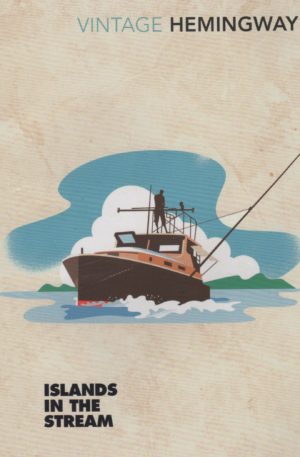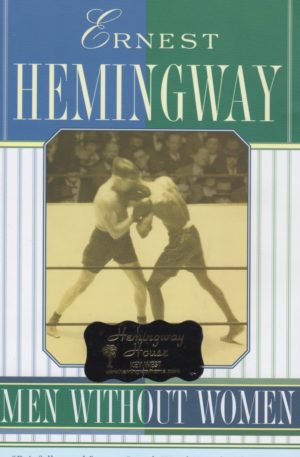


Three very different reads, for sure! Let’s start with Hemingway’s last novel, published for the first time in 1970 by the Hemingway Trust a decade after the master storyteller’s death.
Islands in the Stream
I’ve read all of Papa’s novels and this one, well, despite my appreciation for his other works, blew me away. Like much of Hemingway’s prose, this lyrical tale is chock full of scenes drawn from the author’s life. The underlying plot, whereby Thomas Hudson and his ragtag crew chase down U-boat survivors in Hudson’s personal fishing boat, is drawn from Hemingway’s own experiences in and around Cuba during WW II. Like any Hemingway novel, there is plenty of machismo: Hard drinking, chasing women, blue water fishing, and the rough and tumble of male ego are all on full display. But there is one crucial difference between this novel and say, Across the River and Into the Trees or The Garden of Eden and that is in Islands, much of Hemingway’s misogyny and disrespect towards women is replaced by a more adult, fully matured, kind appreciation for the opposite sex. Even though the protagonist and his two divorced wives have somewhat rocky histories, Hudson doesn’t trash talk Hudson’s prior partners nor belittle them to the extent that was done in some other Hemingway novels. And the women portrayed in the story also are not held to some idealistic pedestal of virtue, as in For Whom the Bell Tolls or A Farewell to Arms.
The plot, involving Hemingway and his crew chasing down survivors of a Nazi U-boat sunk in the Gulf of Mexico, is tightly drawn yet literary. The magic of the master’s voice, his ability to write a concise tale that moves swiftly and compels the reader to turn page after page is present despite the book being published well after the author’s death. A masterpiece even when shelved next to The Old Man and the Sea.
5 stars out of 5.
Men Without Women
Many of my favorite Hemingway short stories are his oldest. I’ve read some of the tales contained in this 1927-issued collection before, including the Nick Adams themed pieces “The Killers” and “Ten Indians.” And I’ve also read “The Undefeated” and “Fifty Grand” previously. Still, re-reading these stories reminded me, especially reconsidering Hemingway’s oblique look at abortion (“Hills Like Elephants”) and his marvelous rumination on age and athletics (“The Undefeated”), of just how unique and eye-opening Papa’s autobiographical and curt yet eloquent style remains. That’s especially true when reading Hem’s short fiction in sunny Key West on a lounge chair next to the sparkling Atlantic with a gentle sea breeze rustling the pages. Not every tale here is a gem; but there’s enough beauty and angst and turmoil and grit in this collection to keep the faith.
( Note: Both Hemingway reads were purchased at the bookshop in Papa’s Key West home, the titles having the apparent approval of the dead author’s cats.)
4 stars out of 4.
Maus (I)
I made a mistake. I bought my first-ever graphic novel thinking that this was the entire story of mice being rounded up by cats as an allegoric rendition of the Holocaust. Turns out, I only bought the first half of Spiegelman’s classic at Books & Books at the Studios in Key West. Oh well. Reading Maus on the plane coming home, I was glad I’d finally decided to break a fast from comics that has lasted since I stopped reading Mad Magazine in my late teens. Wait: That’s not entirely true. I read the comics in the Duluth News Tribune on a daily basis. But beyond that, I’ve been away from graphic stories for nearly fifty years.
Spiegelman’s book isn’t just a chronicle of mice and cats, good and evil. There’s that, for sure. But it’s also the revelation of the author’s relationship with his father and step-mother: That subplot is negotiated by readers alongside Spiegelman’s unveiling of Hitler’s evil. The drawings are stark and in many ways, prescient of the Final Solution through intimation rather than direct depiction.
This is a book (including Maus II) that needs to be read by every middle school child in America given the present undercurrent of demonizing immigrants and The Other. A nicely drawn and told tale that I am forced to give a lesser rating only because, well, the whole story isn’t in this one volume!
4 stars out of 4. Would be 5, I am certain, if the entire tale was in this book.
Peace.
Mark


